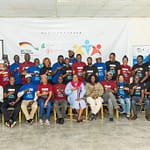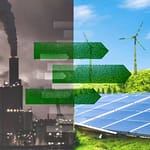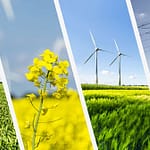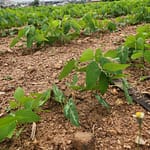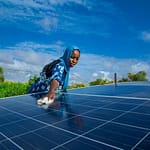Climate change not only poses environmental challenges but also social and economic burdens, impacting communities worldwide. In Kwara state, Nigeria, the devastating consequences of climate change are robbing children of their right to education. Annual floods have displaced families, destroyed classrooms, and created an environment where attending school becomes increasingly difficult. Urgent action is needed to address the educational crisis caused by climate change in this vulnerable community.
The Plight of Chewuru Community
Chewuru, a community located on the fringes of River Niger in Edu Local Government area, Kwara state, is a poignant example of the desolation experienced due to climate change. With over 30 years of yearly flooding, the community has received little to no government assistance. The primary school, consisting of two rooms built through communal effort, remains frequently flooded, leading to teachers abandoning the community. As a result, children are unable to attend school during the rainy season, further exacerbating the challenges they face.
Alhaji Umaru Shaaba, the community head of Chewuru, expressed the community’s plight through an interpreter: “We are suffering in this community; we can’t farm because if we do, floodwater will destroy it. Our children don’t go to school during the rainy season. The three teachers posted to the school live in Lafiagi and can’t access the community.”
Climate Change: A Dire Threat to Children
The effects of climate change are causing severe disruptions to local economies and ways of life. Droughts, floods, and other extreme weather events are becoming more frequent, making it difficult for families to earn a living and send their children to school. According to UNICEF’s climate risk index report from August 2021, climate change is the greatest threat facing the world’s children, with one billion children at “extremely high risk.” Nigeria, ranking second on the list of nations where children are most vulnerable to climate change out of 163 countries, shares in this suffering.

Water Scarcity and Health Risks
Water scarcity, a prevalent issue in Nigeria’s northern region, poses a significant risk to children, who often have to travel long distances in search of water. Asabe Usman, aged 10, expressed her despair over the water situation in her community, stating, “I wish the government can provide another water [dig a borehole] for us so we can stop drinking this water.”
Fati Shaaba, a 13-year-old from the same community, added through an interpreter, “We drink water from the river which made our children and the women fall sick, which has led to the death of some people before we can take them to the hospital in the next village.”
Hajia Ladidi, Fati’s mother, tearfully explained the community’s struggle: “We always hear on the radio what the government is doing for other communities suffering from flooding and water scarcity to alleviate their suffering, we only hear, we don’t see. The only time we see the government in the village is during the election campaign with many promises, and after that, nothing is heard again from them. We have resigned to fate.”

Undermining Sustainable Development Goals
The dire circumstances faced by the children of Chewuru community not only disrupt their lives but also undermine progress towards achieving the United Nations’ Sustainable Development Goals (SDGs). Goal 4, which aims to ensure inclusive and equitable quality education, suffers a significant setback due to climate change-induced challenges. Additionally, Goal 6, focusing on clean water and sanitation, is compromised as the community struggles to access safe drinking water and proper sanitation facilities.
Calls for Urgent Action
The situation in Kwara serves as a stark example of how climate change exacerbates existing inequalities, denying children access to education. Urgent action is needed to protect vulnerable communities and provide every child with the opportunity to learn and thrive.
Lukpan of Lafiagi, the district head of Likpata, expressed the frustration of the communities: “Government has visited all these communities to see the suffering of the people with promises but nothing has been done till date.”
The devastating impact of climate change on education in Kwara’s Chewuru community highlights the urgency for global leaders to address this crisis. Children, already vulnerable to the effects of climate change, bear the brunt of its consequences, hindering their educational prospects and stifling their potential.
With concerted efforts and decisive action, it is possible to mitigate the impacts of climate change, protect communities, and ensure that every child has access to quality education, regardless of environmental circumstances. As the world discusses climate change at the Bonn Climate Change Conference, the voices of Nigerian children like Fati and Asabe yearn to be heard. These young individuals hope that the summit will yield tangible results in safeguarding their future.
Edited by Irene David-Arinze
Published by Samwel Eviator
Subscribe to LIDA NETWORK
